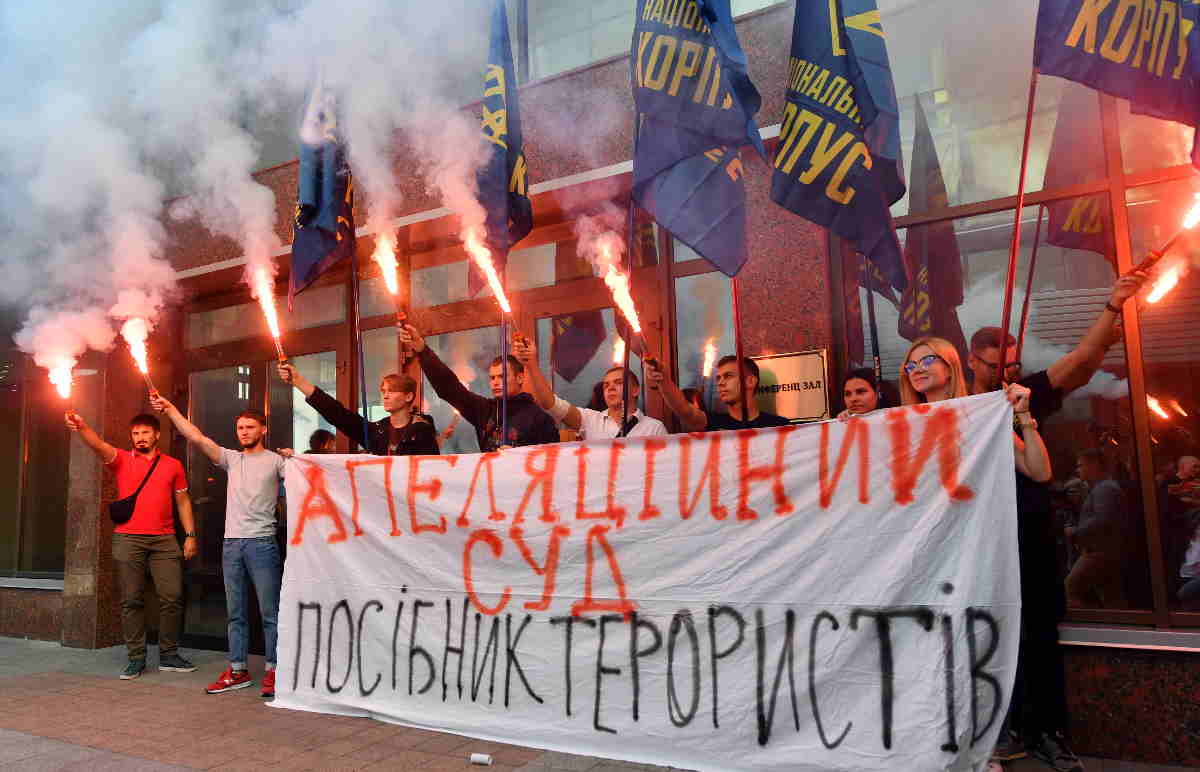A court in Ukraine on Thursday released from detention a man suspected of involvement in the downing of flight MH17, prompting concern from the Netherlands that he may avoid questioning.
The release of Vladimir Tsemakh, an alleged air defence specialist for pro-Russian separatists, comes amid speculation he might be part of a high-profile prisoner swap with Russia.
Russian President Vladimir Putin on Thursday confirmed for the first time the “large-scale” prisoner exchange with Ukraine was being finalised.
Ukraine captured Tsemakh, accused of fighting for pro-Russian separatists, in June, but he is believed to also be a person of interest in the downing of MH17.
The Malaysia Airlines passenger plane travelling from Amsterdam to Kuala Lumpur was shot down by a Russian-made BUK missile in 2014 over eastern Ukraine, with the loss of all 298 people on board.
European lawmakers described him as a “key suspect” and asked Kiev to make him available for testimony in the probe.
On Thursday, judge Yury Sliva of the Kiev appeals court ruled to release Tsemakh, cautioning him to remain available for questioning and not attempt to flee.
Tsemakh was promptly whisked out of the courtroom before making any comment.
‘We are very concerned’
Tsemakh is a Ukrainian who was reportedly in charge of air defence in the forces of the separatist Donetsk People’s Republic near Snizhne in eastern Ukraine.
This is where MH17 came down. Most of those killed were Dutch citizens.
Though his involvement in MH17 has never been confirmed by Ukraine, 40 European lawmakers on Wednesday asked President Volodymyr Zelensky to make sure he was available to be grilled by the Dutch-led Joint Investigation Team (JIT).
A spokeswoman for the JIT, Brechtje van de Moosdijk, said that investigators would like to question Tsemakh, but doing that now will be more difficult.
“We would have wanted him to be available for the investigation, and of course we would regret it if we can’t because he’s being released," she said.
“We are very concerned that he will simply disappear,” added Piet Ploeg, chairman of the Dutch MH17 victims foundation.
International investigators said in June that they are going to put three Russian nationals and one Ukrainian on trial in the Netherlands in March, although they will likely be tried in absentia.
Russian and Ukrainian media have reported that Moscow wants Tsemakh to be handed over to Russia as part of an expected prisoner swap in which several high-profile Ukrainian prisoners are to be released from Russian jails.
The process has stalled following reports that several Ukrainians have been moved to Moscow.
‘Ukraine breaching commitment’
A Ukrainian source close to the talks said that the exchange was expected “soon,” possibly this week.
The source however refused to comment on whether Tsemakh was among those to be handed over to Russia.
Dutch MEP Kati Piri said swapping Tsemakh with Russia would be “breaching its commitment to the investigation.”
The Boeing jet was shot down by a BUK anti-aircraft missile.
Dutch investigators say the projectile originated from the Russian military’s 53rd anti-aircraft missile brigade after it was transported to Snizhne from Russia’s south-west Kursk region.
Tsemakh’s release also provoked strong criticism in Ukraine.
Some suggested that Tsemakh might be killed in Russia while Zelensky’s attempts for closer ties with the West could take a hit.
“It’s one thing when Ukraine makes concessions that only concern itself, but giving up Tsemakh concerns many countries,” wrote pro-Western Ukrainian MP Svitlana Zalishchuk.
“Ukraine is becoming a de-facto co-conspirator in the MH17 crime,” wrote journalist Petro Shuklinov on Facebook.
Some 13,000 people have been killed in Ukraine’s war with Russian-backed separatists in eastern Ukraine, which broke out shortly after Moscow annexed Crimea in 2014. - AFP
